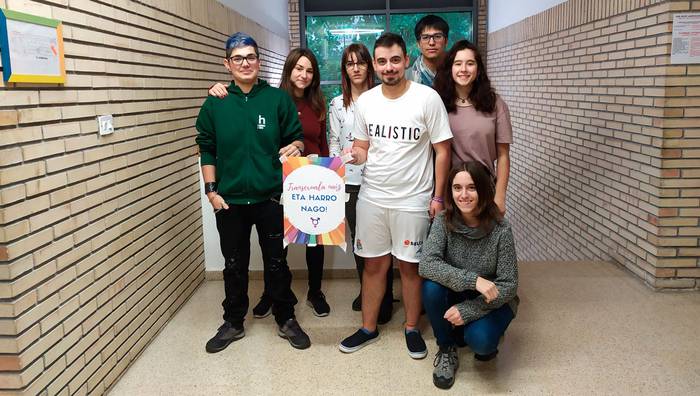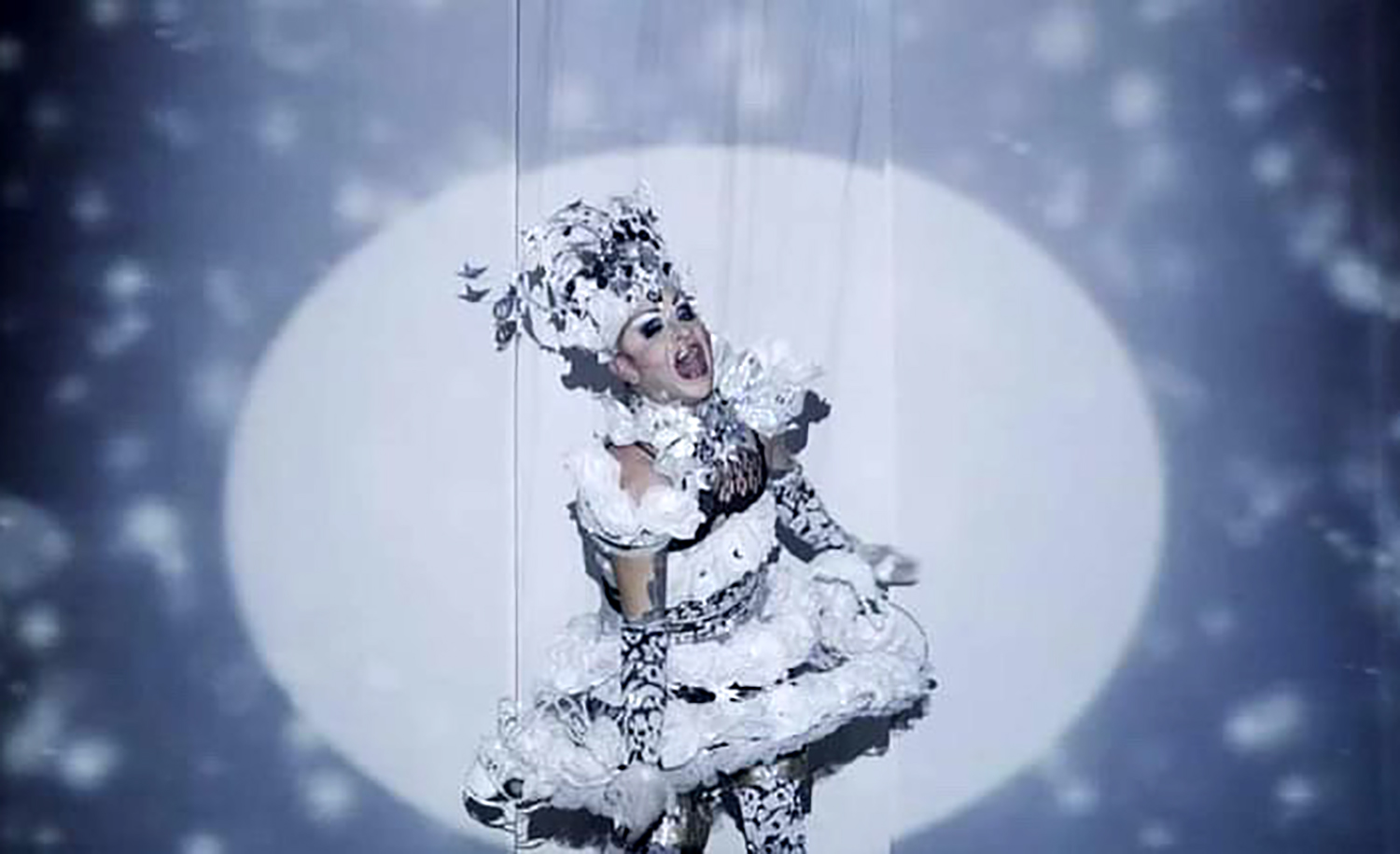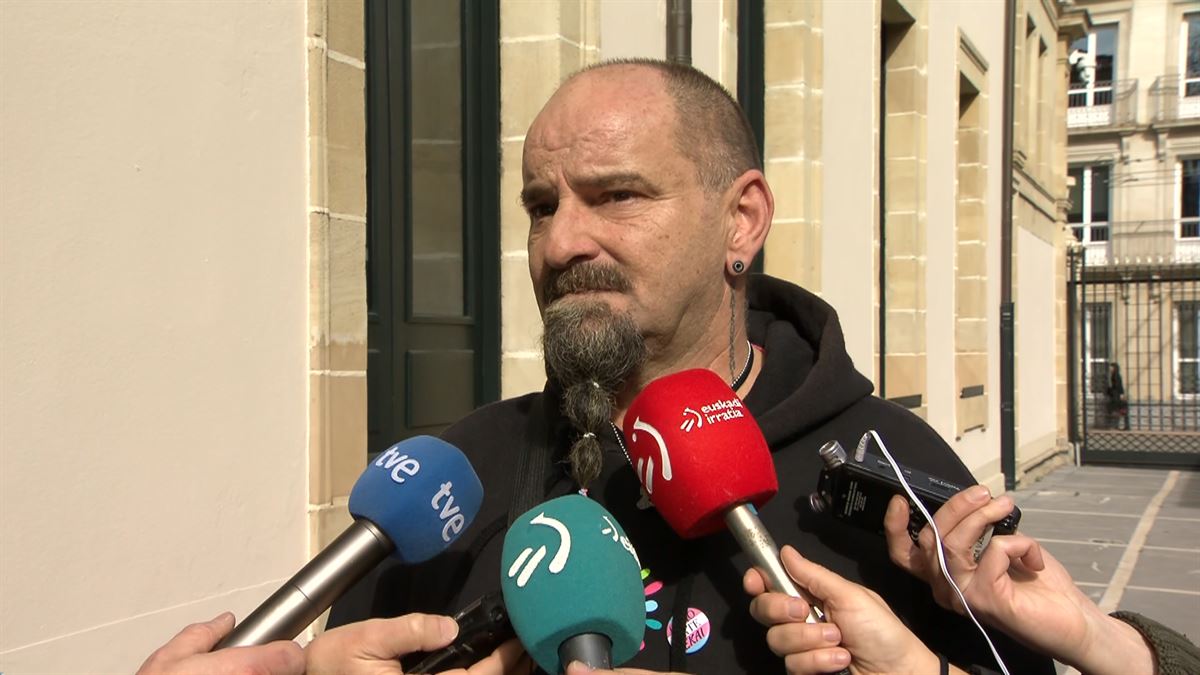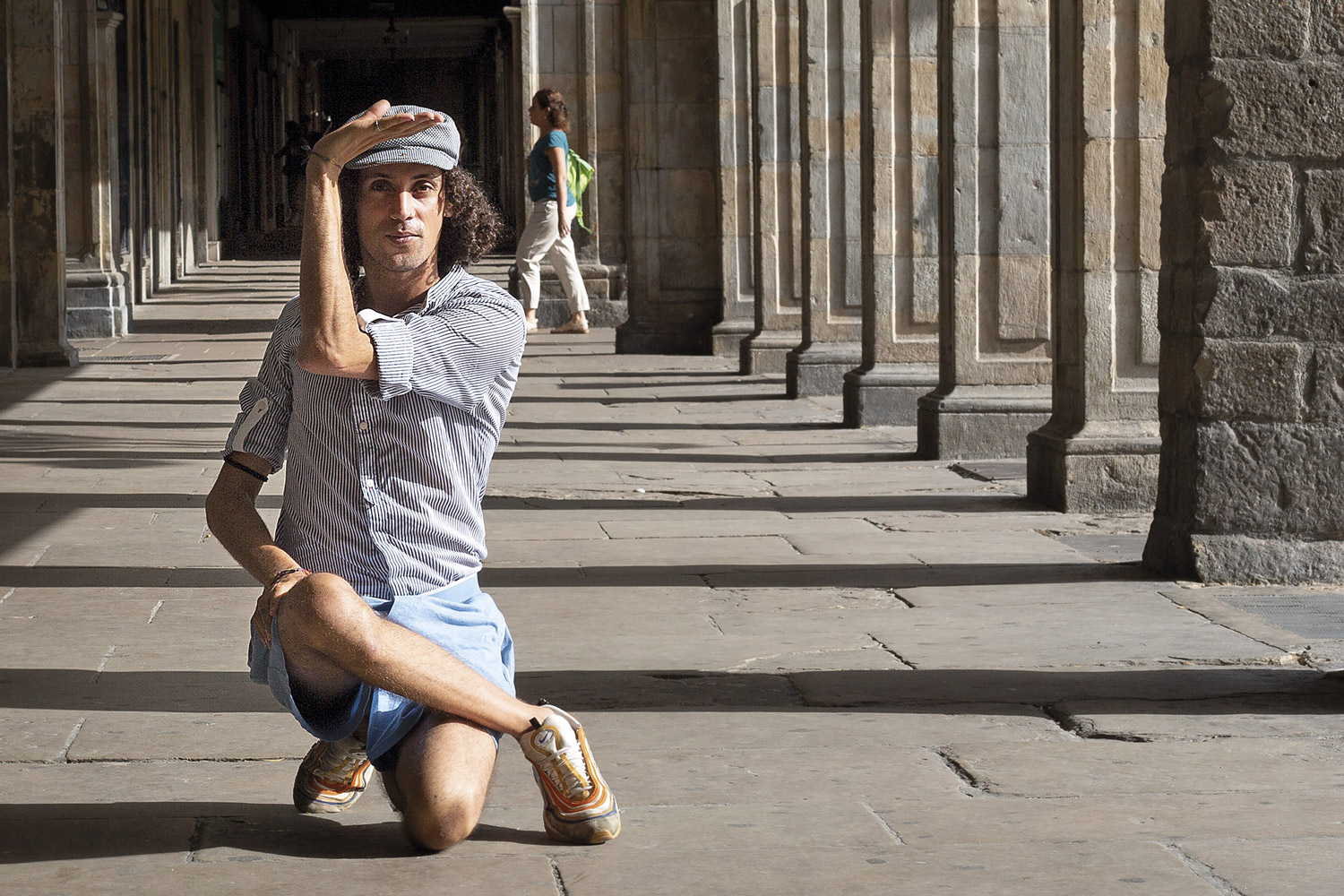They started working early in the course. Brayan Altimasberes Alaminos, Gilen Larrañaga Ruiz de Mendoza, Izaro Ariztimuño Montero, Mash Elizalde Etxeberria, Cristina Clemente García and Ainhoa San Emeterio Mitxelena began to work on the creation of the adult association Loratuz for the adult subject linked to the company.
This idea, which is contained in the reports and in the paper, is now being put into practice. Brayan Altimasberes, a native of Hernani, is working on the project, so they have contacted the City Hall in search of support to make the project a reality. They have made a hole in the Feminist Square, and although the schedules have not yet materialized, they are open to any doubt and any doubt to give them support. Through social media, it's easy to contact them. Also by telephone: Mash: 638 738 924 / Brayan: 688 877 148.
You are the creators of the Loratuz elkartzen association. How did you get together?
Brayan Altimasberes: There is a lesson at all levels. We were in the Basque group. Mash in Spanish. We think about creating a partnership. I had that idea in my head for a long time, and there I saw a great opportunity. They also had the same idea in their class, and the professor thought it would be good to get together and form a group. We started talking and we saw that we all intended to bring the project to reality, and so we took the issue more seriously. We started to do a more serious job, not just for the subject, but for this last goal.
Where does the name come from?
B.A. It wasn't easy! Brainstorming, we made a bunch of ideas and had the help of the professor. The initial idea was to call Loratzen. But we started looking, and we saw that the Naiz Association has a project that has a similar name, and we thought we had to change. So, thinking about it and thinking, Lorando came out. In the end, it indicates that, after a change or a transition, you reinvent yourself as if you were born again. It gathers that feeling and, at the same time, the idea of connecting with others. When you're in a partnership, you're looking for that, see you're not alone. In the end, because that happens, you're alone. That transition you do it alone, and that's why you also do that idea of partnership, to connect with others.
«'Atar Flourishing' means that, after a change or a transition, you reinvent yourself, as if you were born again, and at the same time, the idea of connecting with others.
With what objectives have you created the partnership?
B.A. : Mash and I are trans people, and the transition we've done quite alone. Today there are no references, there are no associations, there is nothing more to go and ask for help to meet other people. That's why we think about creating a partnership, above all, to meet other people who have had similar situations, and also to help others. To be a reference, to know that you're not alone. To make him see that there are others. That something is normal and not normal, something that only happens to them.
Mash Elizalde: And to give psychological support. In the end, in that loneliness you feel psychologically wrong, and knowing about other people who have known that transition gives you strength, and many times you need it. Security. Protection.
B.A. : It is also intended to provide legal aid. Perhaps, not with a view to creating laws, as other associations do, but rather to helping in some problems: If you have a problem with ID, for example, it helps you know where to go.
You are the first adult association, but you say there are others. What deficiencies have you found?
M.E. : Most of them include all LGTB and there's not one for trans people alone. I've freed myself.
B.A. : Naiz is the association of children, adolescents and families. To do all of this, we did a market study, and we found ourselves in front of the Errespecz association. I have been living in Bilbao for five years, but I have never heard of them. So, in our view, they have a big vacuum. What they're working on most is making laws, but they told us they don't bring people together, and there we saw a big gap. Nobody knows it, it's not a benchmark for anyone; you have to be very integrated into this world to learn about the partnership. So those who start now with the process, those who are very lost, don't know where to go. That is why we want to create the first point of reference.
At what stage are you now?
B.A. : We have completed the school work and we are now finalizing the report. We have also made an appointment with the Hernani City Hall to present the project, to obtain a residence; it has made us a space in the Feminist Square. And then advertise in the village. I work in a bar and I'm giving explanations. We're also selling veneers, we're meeting people, and everything spreads through social media, of course. Although we were not based, we intended to present the partnership to the people to help them as much as possible. We have not yet specified office hours, but our phones are available to everyone.
"I don't know if it's been just for Moyo, if it's been the work of transfeminism, if the current reality is different -- but you notice a lot of changes. Great job in Hernani»
By conducting this market study, you have visited several associations. What did you find?
Izaro Ariztimuño: Most were LGTB associations. We went to see what they were working on, and we saw that there was nothing to look at. For example, we met the Errespecz association.
B.A. : We were also with the spokesman for Soy, so that we could be the basis of what they do, and they also know our work. After all, their children are also growing up. Then we were with the Harrotu association, a Navarre association. They also work a little bit.
You want to offer training, support... Do you have resources?
Gilen Larrañaga: At first we have to shape all of this, put a foundation, and then, little by little, we'll see what services to deploy.
B.A. It's a plan for the future. If we were called now and given a conference, we would go, but at the moment it's quite in the air. What is more, for the time being, knowing specific cases, intervening in it and, if assistance is requested, acting on it.
M.E. : Not as an association yet, but on a personal level, I go to the classes to tell my experiences. The idea is to go, to explain who we are and to make our experiences known. There are people who are living similar things, but they don't understand them, they don't know why it's happening to him, and it's very good to see someone in front of you who's counting that or something like that.
B.A. : I think the books of Kattalin Miner (Moio. It was impossible to keep it. Elkar, 2019) has also taken a big step. In Hernani, at least, the road has already begun. It's easier to get closer to me, because they know me and because there's a road ahead, and then, turn to partnership and spread it.
It seems that more and more people are talking about transsexuality. What are the current needs of this community?
B.A. : The situation has improved greatly. The Naiz association has done an impressive job, and it is a subject that is very red-hot. But children are always talked about, and not everyone realizes when they're four or five or six years old or they start going down this road, and many adults don't see, they're hidden. The child's is all very well, and he's doing incredible work, although there's still a lot to do, but I think there's still more need for adults. It's still a hidden theme in adults. We need to make ourselves visible and give strength. Make him understand that he's not bad, that he accepts him when he can, and not when he wants.
M.E. : There is also a lack of information. It is true that more and more is being said about it. Many people know the term transexual, and they don't see it as a bad thing. But it is also true that there is misinformation and, therefore, rumours arise, stereotypes that somehow encourage trans people to follow certain paths that are not beneficial to us.
B.A. Above all, on medicalization.
M.E. : If you're trans, you have to take hormones, operate or be like that. That hurts us.
B.A. : Get the Cis, reach the passing, that is, when there are so many changes that you do not notice that you are trans; achieve that goal. And it doesn't have to. Everyone can make the way they want and making decisions is free. It doesn't have to get anywhere. That's what we want to make sense of.
M.E. : We must not give the impression of being a man or a woman, because we are already.
“Boys and girls have more freedom to claim transsexuality, but in adults it is still very difficult. There are a lot of references missing among adults”
In November, you did a couple of surveys to collect data about transsexuality. What have you received? Have you been surprised?
M.E. I don't. Much was expected of what I had received. It is true that from this survey we deduced that the term transsexual is known, but there were many doubts about the differences between the fact of being transgender and being transgender. On the other hand, it was a good thing that trans people said that they saw it necessary to do this that we are doing; I thought it was very nice. We conducted different surveys for trans and cis people.
B.A. : Through this survey we also met Josu Erkoreka with respect. I think what surprised us the most was his way of responding, his attitude. We went to meet them, they told us that at first they did have the meeting days. But it had come a time when people knew that what they didn't want or didn't want was quiet. That surprised us, because at least we see that need in our environment. We don't know if it's a thing of them, or if it happens there and here we don't... They are in Bilbao, although they work for everything or for more Euskadi.
Brayan, knows the case of Aimar Elosegi. Have things changed in the last decade?
B.A. : The case of Aimar also I mentioned in the book, it happened to me. Nothing is known about this in the people, but I have noticed that, in my case, my acceptance has been easier. It has made my way much easier. There's a big difference. I don't know if it's just for him, if it's been the work of transfeminism, if the current reality is different -- but you notice a lot of changes. I realized when I was 18, or I accepted it, and I came and realized there was a lot of acceptance in the village. Then I found out about Moio and saw that the work in the village was done. In other peoples, I do not know what the reality is. But Hernani's reality seems very different to me.
M.E. : I'm from Pamplona. In my case, I realized, or rather I would accept that I noticed, saying here I am and so I am, I did it at 17 years old. But of course, I knew that before. I started asking him at the age of four or five why I didn't have that little thing my brother already had. And things like that. I went into the stereotyped canon of women to try and find myself. But no. I think things have changed a lot. I was lucky because my friends were there at the time. But I did feel lonely, because I didn't know almost anyone what I was transsexual about, and it was pretty hard. Now I have younger friends and friends than I have, who have started the process, and things have changed a lot. They have more facilities, more recognition and more referrals. However, I believe that things are not the same in Hernani as in Pamplona. Here, with the question of transfeminism, people seem to know more. In Pamplona no. There we have another branch of feminism, and it hits quite a lot against transgender men.
B.A. : However, when we were young, not so many cases were known, and with the Naiz association the issue is becoming more known, children have more freedom to claim transsexuality and be transsexual. Many changes have been made and much progress has been made in this regard. But, I insist, in children, in adolescents yes, but in adults it is still very difficult. A lot of references are missing among adults.

























